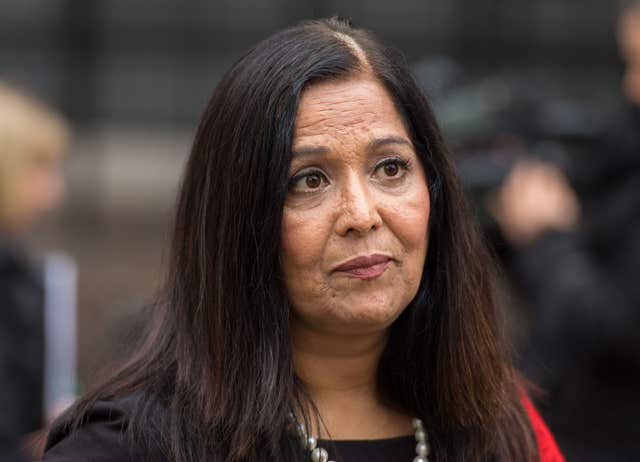MPs are calling for improved access to hearing tests and for hearing aids to be made “cool” to encourage more people to wear them.
Labour MP Yasmin Qureshi is backing a campaign to move audiology to a primary care system, which would allow patients to access hearing tests on high streets, in a similar way to eye tests.
With waiting times as long as 20 months for audiology appointments, Ms Qureshi said the issue cannot be ignored and argued that a self-referral system would reduce pressures on hospitals.

Specsavers, which is leading the campaign, said the proposed system would free up to 500,000 GP appointments a year and enable patients to be seen within four weeks.
Speaking at an event in Parliament, Ms Qureshi said: “This is an issue very close to my heart, I have been having problems with my ears and hearing loss for many, many years. And the first time I had an ear graft was when I was aged 17, so both of my ears have challenges.
“I think it was only a few months ago that I truly felt the impact, when I was sitting in the House of Commons chamber, waiting to be called and the Speaker actually did call me out but I managed to mishear him.
“So it was a reminder to me, and for many others, that hearing loss can actually have serious consequences. I don’t know if many of you know this, but 40% of those leaving the workforce early say that hearing loss is one of the key factors.”
Ms Qureshi said people wouldn’t have to “leave the job market” if hearing tests became more common, and this could lead to a boost in productivity.
The MP for Bolton South and Walkden added: “Waiting times for hospital audiologist services can be something as long as 20 months, in some places. So it’s not an issue we can ignore, and therefore we need to see changes in the NHS so that all those who need it are able to access it.
“So that’s one of the reasons I’m calling for a move to a model of primary care audiology, working alongside NHS hospitals, to find a better solution. We need to harness the capacity on our high streets to ensure the NHS can deliver early care, closer to home, and at a lower cost.
“At the same time this will reduce pressures on hospitals, allowing them to concentrate on more complicated, hospital-based needs.”
At the event, Liberal Democrat spokeswoman for hospitals and primary care, Jess Brown-Fuller, spoke of her experienced of hearing loss at a young age.
“I’m very aware that as I get older, the reduced hearing that I already have will no doubt increase and I will need to ask for support from audiology services. So that’s one of the reasons I welcome the £22.6 billion in new funding for the NHS in last week’s Budget as a step in the right direction,” she said.
She added: “Hearing loss is not just a physical issue, it has profound social and mental health implications, and addressing hearing loss can facilitate healthy ageing, something I hope to do.
“In the UK, one in three adults are deaf, or have hearing loss or experience tinnitus, and yet 38% of people who think they may have hearing loss have not spoken to a professional about it.”
Ms Fuller-Brown went on to say: “An estimated seven million adults could benefit from hearing aids, but only two million of them use it.
“And I was speaking to a gentleman from Specsavers before I came up on stage, and he was saying we need to do with hearing aids what we’ve done with glasses – which is basically make them cool.
“I was absolutely gutted as a kid that my eyesight was good, I really wanted glasses like all the cool kids in my class.”
Founder of Specsavers Doug Perkins said: “We are going to put the case to Stephen Kinnock, and colleagues in the Labour Party, take advantage of this 10 year plan.”
He added that he believes “a realistic model across the nation in five years” could be achieved.
A Department of Health and Social Care spokesperson said: “We are clear that the NHS is broken and community health services like audiology have been neglected.
“A crucial part of our 10-year health plan will be moving towards a neighbourhood care service, enabling people to get diagnosed earlier and treated faster, closer to home, with more care delivered in local communities.
“We want to use all resources and options we have available to improve access and reduce waiting times for referrals.”




Comments: Our rules
We want our comments to be a lively and valuable part of our community - a place where readers can debate and engage with the most important local issues. The ability to comment on our stories is a privilege, not a right, however, and that privilege may be withdrawn if it is abused or misused.
Please report any comments that break our rules.
Read the rules here